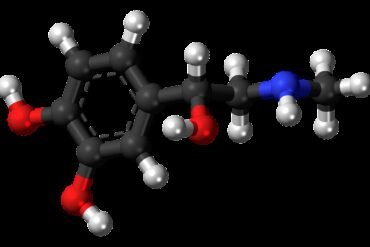The Connection Between Nutrition and Allergies

Table of Contents
- The Basics of Allergies: Understanding the Relationship
- Nutritional Strategies to Manage Allergies
- Key Nutrients for Boosting Immune Function
- Food Allergies: Identifying and Managing Triggers
- The Role of Gut Health in Allergies
The Basics of Allergies: Understanding the Relationship
Allergies are the result of the immune system reacting to certain substances called allergens. These allergens can be found in various forms such as pollen, dust mites, certain foods, medications, or animal dander. When an individual with allergies comes into contact with a specific allergen, their immune system identifies it as harmful and releases chemicals, such as histamine, to defend the body. This immune response leads to the typical allergy symptoms like sneezing, itching, hives, or even more severe reactions like anaphylaxis.
While allergies can be influenced by genetics, environmental factors, and exposure to allergens, emerging research suggests that nutritional factors may also play a role in the development and management of allergies. The relationship between nutrition and allergies is complex and multifactorial, but understanding the basics can help individuals make informed choices.
- Gut Health: The gut plays a crucial role in the immune system, and maintaining a healthy gut microbiome is key in managing allergies. Consuming a balanced diet rich in fiber, prebiotics, and probiotics can help promote a diverse and beneficial gut bacteria population, enhancing immune function and reducing the risk of allergies.
- Anti-Inflammatory Foods: Incorporating anti-inflammatory foods, such as fruits, vegetables, whole grains, fatty fish rich in omega-3 fatty acids, and nuts, can help reduce inflammation in the body. Chronic inflammation may contribute to the development of allergies, so incorporating these foods into the diet may have a protective effect.
- Food Sensitivities and Elimination Diets: Some individuals may experience allergies or intolerances to certain foods, contributing to allergy symptoms. Identifying and eliminating trigger foods through guided elimination diets or working with a healthcare professional can help manage these symptoms and improve overall well-being.
- Vitamin D: Adequate vitamin D levels have been associated with a reduced risk of allergies and asthma. Spending time outdoors, consuming foods like fatty fish, egg yolks, and fortified dairy products rich in vitamin D, or discussing supplementation options with a healthcare professional can help ensure optimal levels.
- Hydration: Staying hydrated is essential for overall health, including proper immune function. Drinking an adequate amount of fluids, primarily water, helps maintain mucous membrane hydration, which can improve the body’s defense mechanisms against allergens.
It is important to note that nutritional factors alone cannot treat or cure allergies. Allergy management requires a comprehensive approach, including avoidance of allergens, medication if needed, and working closely with healthcare professionals for personalized guidance. Nevertheless, a balanced and nutritious diet can contribute positively to overall health and potentially reduce the impact of allergies on individuals’ lives.
Nutritional Strategies to Manage Allergies
When it comes to managing allergies, proper nutrition can play a crucial role in minimizing symptoms and improving overall health. By incorporating specific foods and avoiding potential allergens, individuals with allergies can find relief and support their immune system. Here are some essential nutritional strategies to consider:
- Focus on Anti-Inflammatory Foods: Opt for foods that possess anti-inflammatory properties, such as fatty fish (salmon, sardines), walnuts, flaxseeds, and leafy greens. These foods can help reduce inflammation in the body, alleviating allergy symptoms.
- Increase Vitamin C Intake: Vitamin C is known for its immune-boosting properties and is beneficial for allergy sufferers. Incorporate citrus fruits, strawberries, kiwi, and bell peppers into your diet to increase your intake of this vital nutrient.
- Include Probiotics: Probiotics are beneficial bacteria that promote a healthy gut, which is essential for a strong immune system. Incorporate sources of probiotics, like yogurt, kefir, sauerkraut, and kimchi, into your daily routine to support your gut health.
- Avoid Common Allergenic Foods: Identify and eliminate any foods that you are allergic to or have sensitivities toward. Common allergenic foods include peanuts, tree nuts, dairy products, eggs, shellfish, and gluten-containing grains. However, it is crucial to consult a healthcare professional before making any drastic dietary changes.
- Stay Hydrated: Proper hydration is often overlooked but is essential for managing allergies. Drinking an adequate amount of water helps flush out toxins, supports the immune system, and promotes overall well-being.
- Consider Local Honey: Some individuals find relief from seasonal allergies by consuming local honey, which may contain traces of local pollen. However, scientific evidence is limited, and individual responses may vary.
Remember, while nutrition plays a vital role in managing allergies, it should not be considered a standalone treatment. It is crucial to work with a healthcare professional or allergist to ensure a comprehensive approach to allergy management. Additionally, always read food labels carefully and be aware of cross-contamination risks to avoid any potential allergens in your diet. By combining nutritional strategies with other recommended treatments, individuals with allergies can experience improved symptoms and overall well-being.
Key Nutrients for Boosting Immune Function
When it comes to allergies, nutrition plays a crucial role in maintaining a strong immune system. By consuming the right nutrients, you can boost your immune function and reduce the risk of allergic reactions. Here are some key nutrients that have been found to have a positive impact on immune health:
- Vitamin C: This powerful antioxidant is known for its immune-boosting properties. It helps to stimulate the production of white blood cells and antibodies, which are essential for fighting off allergens.
- Vitamin D: Adequate levels of vitamin D have been linked to a reduced risk of allergies and asthma. Get your daily dose of this vitamin through safe sun exposure or by consuming foods rich in vitamin D, such as fatty fish, fortified dairy products, and mushrooms.
- Omega-3 fatty acids: Found in fatty fish, flaxseeds, and walnuts, omega-3 fatty acids have anti-inflammatory properties that can help alleviate allergy symptoms. They also support the production of immune cells that regulate allergic responses.
- Probiotics: These beneficial bacteria promote a healthy gut microbiome, which plays a crucial role in immune function. Incorporate probiotic-rich foods like yogurt, kefir, sauerkraut, and kimchi into your diet.
- Zinc: Zinc deficiency has been associated with increased allergy risk. Include zinc-rich foods like lean meat, legumes, nuts, and seeds in your diet to support immune health.
In addition to these key nutrients, it is important to maintain a balanced diet that includes plenty of fruits, vegetables, and whole grains. These foods provide essential vitamins, minerals, and antioxidants that support overall immune function.
While nutrition is an important factor in managing allergies, it is crucial to consult with a healthcare professional or registered dietitian for personalized advice. They can help you create a well-rounded diet plan that meets your specific nutritional needs and supports your immune system.
Food Allergies: Identifying and Managing Triggers
Food allergies can significantly impact an individual’s quality of life, as they can lead to various uncomfortable symptoms and even life-threatening reactions. By understanding the connection between nutrition and allergies, we can identify and effectively manage triggers, improving the overall well-being of allergy sufferers.
- Understanding Food Allergies: Food allergies occur when the immune system mistakenly identifies certain proteins in food as harmful. Common allergenic foods include nuts, shellfish, eggs, milk, wheat, and soy.
- Identifying Allergy Triggers: Keeping a detailed food journal can help pinpoint specific ingredients that trigger allergic reactions. Additionally, allergy testing, such as skin prick tests or blood tests, can provide valuable insights into potential allergens.
- Managing Food Allergies: Once triggers are identified, the best approach is to avoid consuming those particular foods. Reading ingredient labels carefully and asking about food preparations at restaurants can help minimize the risk of inadvertent exposure.
- Alternative Food Choices: It is crucial for individuals with food allergies to find suitable alternatives to ensure a balanced diet. Consulting with a registered dietitian can provide guidance on suitable substitutes and essential nutrients.
- Adopting Cross-Contamination Measures: Cross-contamination is a common concern for those with severe allergies. Ensuring separate cooking utensils, surfaces, and storage can reduce the risk of unintentional exposure to allergens.
Furthermore, staying updated on food recalls and allergen labeling regulations can aid in avoiding potential allergens. It is also essential to educate friends, family, and caregivers about the allergy and its potential risks. In severe cases, carrying an epinephrine auto-injector can be a life-saving precautionary measure.
In conclusion, understanding the relationship between nutrition and allergies empowers individuals to identify and manage potential triggers effectively. By implementing lifestyle modifications and making informed food choices, individuals with food allergies can lead a safer and healthier life.
The Role of Gut Health in Allergies
The connection between nutrition and allergies is well-established, and one key factor that influences allergic responses is gut health. The gut, specifically the gastrointestinal tract, plays a crucial role in regulating our immune system and overall health. It is home to trillions of bacteria, collectively known as the gut microbiota, which are involved in various bodily functions, including digestion, metabolism, and immune modulation.
When the balance of gut bacteria is disrupted, it can lead to a condition called dysbiosis, which has been associated with the development of allergies. Imbalances in the gut microbiota can weaken the intestinal barrier, allowing allergens and toxins to enter the bloodstream and trigger an immune response. Furthermore, dysbiosis can result in an overactive immune system, leading to hypersensitivity reactions and the development of allergies.
Several studies have shown that early-life exposure to certain microbial strains in the gut, particularly during infancy, can influence immune development and decrease the risk of allergies later in life. Breastfeeding, for example, provides essential nutrients and beneficial bacteria that contribute to the development of a healthy gut microbiota, reducing the susceptibility to allergic diseases.
In addition to infancy, maintaining a diverse and balanced gut microbiota throughout life is crucial in preventing and managing allergies. A diet high in fiber, fruits, vegetables, and fermented foods promotes the growth of beneficial gut bacteria. These bacteria produce short-chain fatty acids (SCFAs), such as butyrate, which have anti-inflammatory properties and help regulate immune responses.
On the other hand, a diet high in processed foods, sugar, and saturated fats negatively impacts gut health. It can lead to dysbiosis, inflammation, and increased intestinal permeability, contributing to allergic sensitization and the development of allergies.
Furthermore, emerging evidence suggests that probiotics and prebiotics can be effective in managing allergic conditions. Probiotics are live beneficial bacteria that, when consumed, can colonize the gut and improve gut microbiota diversity. Prebiotics, on the other hand, are non-digestible fibers that serve as food for beneficial gut bacteria. By incorporating these into the diet, individuals may reduce the severity and frequency of allergic symptoms.
In conclusion, the connection between nutrition and allergies is intricately linked to gut health. Maintaining a diverse and balanced gut microbiota through a healthy diet and incorporating probiotics and prebiotics can help prevent and manage allergies. By prioritizing gut health, we can support our immune system and lessen the risk of allergic reactions.
- Promote a healthy gut microbiota by consuming a diet rich in fiber, fruits, vegetables, and fermented foods.
- Avoid processed foods, excessive sugar, and saturated fats that negatively impact gut health and promote dysbiosis.
- Consider breastfeeding to provide essential nutrients and beneficial bacteria to help establish a healthy gut microbiota early in life.
- Explore the use of probiotics and prebiotics as potential supplements to improve gut health and manage allergic conditions.
- Remember, a healthy gut equals a healthy immune system, reducing the risk of allergies.


























